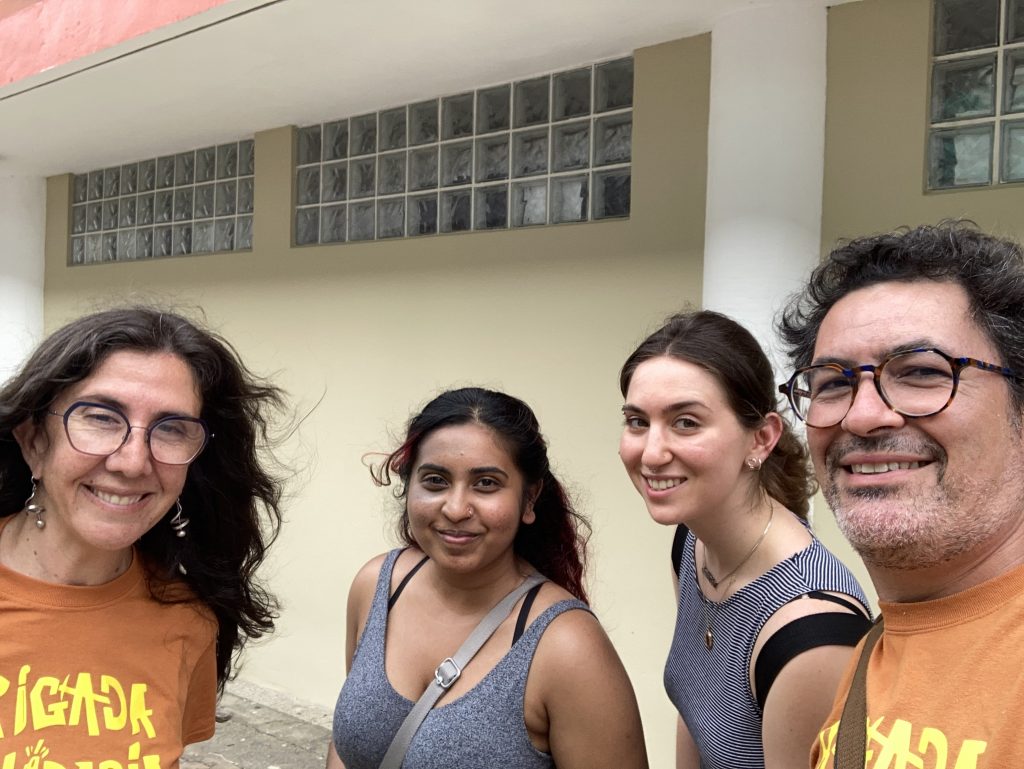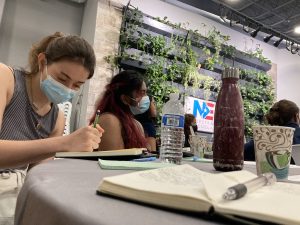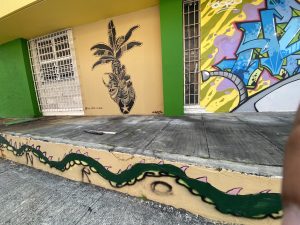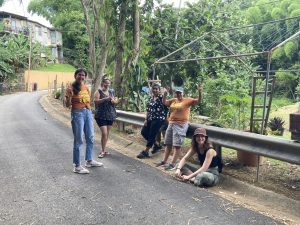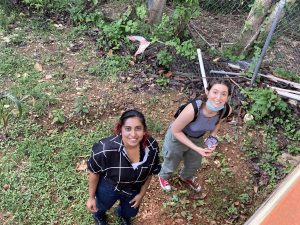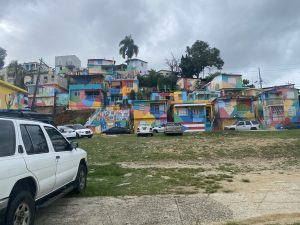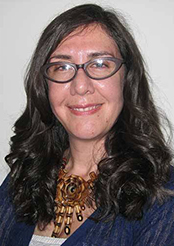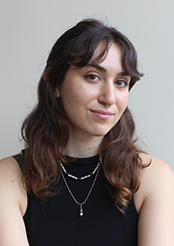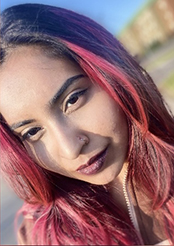Sociology Students Assist Faculty with Field Research in Puerto Rico
Contributed by Roberto Vélez-Vélez, associate professor of sociology
In the summer of 2022, two students from the Sociology Department joined a collaborative research team observing mutual aid organizations in Puerto Rico.
The team, co-led by Roberto Vélez-Vélez, associate professor of sociology, and Jacqueline Villarrubia-Mendoza (Colgate University), is completing a National Science Foundation funded study on the emergence of mutual aid recovery initiatives in Puerto Rico after Hurricane María (2019-2022). The ethnographic project has focused on visiting and following five emerging organizations in Puerto Rico to document, examine and understand the way these organizations have approached disaster recovery from below and the response from community members to the work and practices that these organizations have put in place.
After following the organizations for close to four years, the principal investigators decided to add a new set of fresh eyes for the observation process by incorporating two SUNY New Paltz undergraduate sociology students, Juliana Freiberg ‘23 and Shaleeza Velupillai ‘23.
Having completed their research methods requirement for their major, both students expressed interest in doing research with Vélez-Vélez, who consulted with his collaborator in adding these students into the project. For about a year, Freiberg and Velupillai were introduced to basic tasks including searches in newspapers, building a news article database, and coming up with a coding scheme for articles. Throughout the process, they learned how to create categories for particular themes and use a qualitative software, MaxQDA, to create the coding scheme and apply it.
“What sparked my interest was my desire to expand on my experience and knowledge of approaching sociological research. Initially, I was searching for research opportunities related to social justice or mental health. When Vélez-Vélez proposed his research project regarding the impact of Hurricane María, I accepted the opportunity because I knew it would open my eyes to an area I don’t know much about, and I wanted to learn more. I wasn’t expecting myself to become as passionate about it as I did.” (Velupillai)
“I considered research because I want to contribute to our collective understanding of social problems and their potential solutions. Professors Villarrubia-Mendoza and Vélez-Vélez’s work caught my interest because of its importance to underserved communities, but also because I was inspired by their passion and commitment to this project. I knew that this opportunity would expand my understanding of what it means to do research, both in terms of learning pertinent skills but also in developing a deeper appreciation for the work itself. In addition, as the daughter of Latin American parents, I thought that my ability to speak Spanish would be an asset to the project, and it is a skill that I enjoy putting into practice.” (Freiberg)
After these tasks were almost completed, Vélez-Vélez and Villarrubia-Mendoza, proposed to the students the idea of joining them in Puerto Rico for a 10-day immersion into fieldwork, visiting some mutual aid centers and attending events where aid organizations would be present and working.
Vélez-Vélez said that the idea behind bringing these students into the field was to have a set of fresh eyes observing what the principal investigators had been observing for four years. In recording their observations and through reflexive debriefings of the field observations, the students helped the PIs in corroborating and validating many of the themes and trends they had identified.
“I am so grateful that we were able to join Professors Villarrubia-Mendoza and Vélez-Vélez in Puerto Rico on this research project. I was deeply impacted by the contrast between the beauty of the island and the severe and persistent effects of the government’s current disaster preparedness and response policies. It also made me appreciate the hard work and commitment of the mutual aid organizations that are trying to fill in the gaps to support the community. Being immersed in the culture and geography gave me a much richer understanding of the context of our work.” (Freiberg)
“Going to Puerto Rico was an amazing experience. Our days of fieldwork consisted of observing, translating, reflecting, and note-taking for several hours. They were often lengthy and exhausting, but the people I met and the things I learned made everything worthwhile. I felt a strong connection with the community and the environment; people welcomed and spoke to each other as if they were family. The home-cooked food was fresh, and the scenic landscape brightened the overall mood. Hearing about people’s firsthand experiences with the hurricane, observing the demographics, and seeing the voice these conferences provided them was crucial to the research process.” (Velupillai)
In preparation for the immersion, the co-PIs provided the students with training on field observation, note taking skills, and basic background on the field sites they were attending. After every field visit, the team was to come together for debriefing on the events of the day, sharing impressions and highlights of their experience.
Fieldwork included attending and participating at a Community Emergency Response Team (CERT) training guided by Federal Emergency Management Agency (FEMA) for community organizers, attending and assisting in a documentary screening and workshop at a mutual aid center, and joining a community project follow-up visit with a mutual aid organization. The students’ observations certainly provided a new outlook on the research, but more vividly illustrated the curious, inquiring and critical minds that they brought to the field.
“The experience of doing observations was both challenging and engaging. As I listened to people’s concerns and observed some of the problematic efforts of government organizations, I became wrapped up in the conversations and discussions. It was interesting hearing from the people about the catastrophic situations they were trapped in. The challenging aspect was sitting through hours of conferences and discussions, translating between languages throughout the process. Nevertheless, the observations we made were very necessary in grasping the essence of the research.” (Velupillai)
“Observing how these different organizations work at the grass-roots level to improve things like disaster preparedness, community engagement, access to education, utilities and basic needs, was an eye-opening experience. Seeing the way that they are structured for collective action, the way that they do community outreach to get people involved, and the way that they ask and listen to the community about what their needs are and how they can be met, made me understand why Professors Villarrubia-Mendoza and Vélez-Vélez found it important for us to be present for these events. It was great to put into practice what we have learned about observation and data collection in the classroom and I am looking forward to applying the body of data and observations that we have collected in the next stage of our project.” (Freiberg)
After the fieldwork was over, students continued their work by submitting completed field notes, creating a coding scheme for their shared observations, and using MaxQDA for a preliminary analysis of these observations. The next stage is to produce a briefing on the fieldwork and propose the draft of an abstract for a poster presentation at the Eastern Sociological Society in Baltimore in 2023.
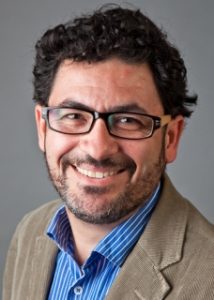
From left: Roberto Velez-Velez, Jacqueline Villarrubia-Mendoza, Juliana Freiberg, Shaleeza Velupillai

